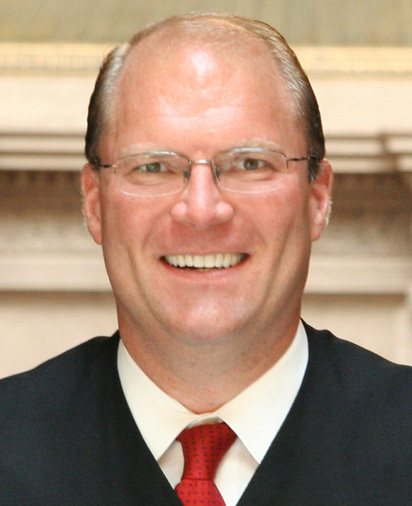U.S. Supreme Court Must Meet John Doe
By hearing case, court would end legal confusion and might enhance its reputation.
An appeal of the recent Wisconsin Supreme Court’s decision to end the John Doe investigation would present the U.S. Supreme Court with an interesting choice. On the one hand, as I’ve suggested in previous columns, it might let the decision stand. The U.S. high court’s decisions set an upper limit on what states can do in regulating campaign finance. States are free to do less, such as allowing coordination between candidates and “independent” groups when the coordination is limited to communications that don’t explicitly advocate voting for or against a candidate.
However, the Wisconsin Supreme Court majority decision written by Justice Michael Gableman repeatedly cites decisions by the U.S. Supreme Court and other federal appeals courts as justification. To accomplish this, Gableman repeatedly quotes from federal decisions, while ignoring their contexts. In short, unable to find language backing his position, Gableman creates it. Here is how he treats a decision from the 7th Circuit Court of Appeals:
The special prosecutor has not alleged any express advocacy, and issue advocacy, whether coordinated or not, is “beyond the reach of [Ch. 11].” Barland II, 751 F.3d at 815. Accordingly, we invalidate the special prosecutor’s theory of the case, and we grant the relief requested…
The phrase “whether coordinated or not,” placed in close proximity to an actual quote from the decision leaves the impression he is paraphrasing the Barland II. In truth, there is nothing in Barland II that would suggest that coordination on issue advertising is “beyond the reach” of the law. Barland II addressed a number of issues, but not coordination. As that decision notes, the organization and state political action committee at issue in the case didn’t coordinate, but “operate independently of candidates and their campaign committees.”
Barland II did consider a challenge to a section of Wisconsin law which, in the court’s words, “imposes an oath requirement on individuals and independent committees before they spend money to support or oppose a candidate for state or local office. These independent speakers must affirm that their spending is not coordinated with the candidate or candidate’s agent.” In short, state law required that independent committees assure they are not coordinating with campaign committees, yet the court let the oath stand, calling it “a minimally burdensome regulatory requirement… reasonably tailored to the public’s informational interest in knowing the sources of independent election-related spending.” If, as Gableman asserts, coordination is perfectly legal if it involves only issue advocacy, wouldn’t this have been the perfect time to narrow the oath?
Throughout the decision’s 91 pages Gableman employs variations of the same practice: quoting US Supreme Court language that was written in connection with uncoordinated independent communications and twisting it to argue that coordinated expenditures should be considered independent so long as they don’t involve explicit endorsements.
If Gableman were truly interested in bringing Wisconsin law into conformance with US Supreme Court decisions, he could have followed an approach sometimes taken by federal appeals courts: look to federal election law. If the federal law contains a provision similar to the state law, the state law is likely constitutional as well. The federal election statute does indeed include a provision almost identical to the Wisconsin law that Gableman rejected:
expenditures made by any person in cooperation, consultation, or concert, with, or at the request or suggestion of, a candidate, his authorized political committees, or their agents, shall be considered to be a contribution to such candidate;
Despite its thrashing of many other sections of the federal election law, the US Supreme Court upheld its contribution limits. It believed that such a rule posed a minor danger to the First Amendment, since its enforcement did not depend on the content of the communication resulting from coordination, but just on the issue of coordination. In the 40 years since the US Supreme Court first approved this provision in the Buckley decision, it has never been seriously challenged—until now, with Gableman’s decison.
There is no sign the U.S. Supreme Court is reconsidering the requirement that coordinated expenditures be treated as contributions. On the contrary, it has repeatedly pointed to the lack of coordination as a reason that other limitations on independent expenditures could be safely invalidated. This started with the Buckley decision itself. Here is the court invalidating a statutory limit on how much could be spent on communications. It is telling that the independent expenditures the court referred to did not explicitly endorse or advocate the defeat of a candidate:
Unlike contributions, such independent expenditures may well provide little assistance to the candidate’s campaign and indeed may prove counterproductive. The absence of prearrangement and coordination of an expenditure with the candidate or his agent not only undermines the value of the expenditure to the candidate, but also alleviates the danger that expenditures will be given as a quid pro quo for improper commitments from the candidate.
In Citizens United, in the midst of removing limits on corporate contributions, the court not only twice repeated the Buckley language, but added a third in its own words. It again asserted that an expenditure coordinated with a candidate is not independent:
The appearance of influence or access, furthermore, will not cause the electorate to lose faith in our democracy. By definition, an independent expenditure is political speech presented to the electorate that is not coordinated with a candidate.
How does the Gableman reconcile the contradiction between his decision and the federal law? In other words, how can a provision be unconstitutional in state law when it passes muster in federal law? Gableman has no answer. He never mentions the federal law.
Justice Gableman’s decision begins and ends with the statement, “To be clear, this conclusion ends the John Doe investigation because the special prosecutor’s legal theory is unsupported in either reason or law.” What is the legal theory that is “unsupported in either reason or law”? Here is how Gableman summarizes it:
The theory of the case, as put forward by the special prosecutor, is two-fold: (1) that the independent groups and the candidate committee worked “hand in glove” such that the independent groups became mere subcommittees of the candidate’s committee, thus triggering reporting and disclosure requirements … and (2) that the coordinated issue advocacy amounted to an unlawful in-kind contribution to the candidate committee.
The legal theory Gableman disparages is the very one incorporated into federal law and repeatedly endorsed by the US Supreme Court. The strange contortions Gableman had to go through to conclude that “the special prosecutor’s legal theory is unsupported in either reason or law” strongly suggest that the decision was much less about arriving at a fair interpretation of law than at halting the investigation.
Will the US Supreme Court step in and reverse the Gableman decision? When this question was first raised, I was skeptical. There is no requirement that states treat coordinated communications as contributions. North Carolina, for instance, allows coordination. Thus the court might rationalize Gableman’s decision as Wisconsin changing its law to allow coordination. Such a decision, although very unwise in my view, is not a violation of the constitution.
However, this very argument is also one reason why the US Supreme Court must overturn the Gableman decision. Courts are not meant to be policy making bodies. We depend on them to fairly interpret the laws regardless of the agendas of groups that may have helped in their members’ elections. The huge independent expenditures by groups targeted in the John Doe investigation for the election of the very justices joining the decision to shut down the investigation, compounded by the refusal of any justice to recuse him or herself and the intellectual dishonesty of Gableman’s decision suggest that the Wisconsin Supreme Court has lost its integrity.
A second reason to overturn the Gableman decision is reputational. The Gallup poll found the U.S. Supreme Court’s favorable-unfavorable rating dropping from 62-29 percent in 2000 to 45-50 most recently. By far the most unpopular decisions the court has made are those striking down election laws and allowing unlimited money in elections. When a recent Bloomberg poll asked people about Citizens United, allowing corporations to spend money on elections, an overwhelming majority thought it was a bad decision by a margin of 78 percent to 17 percent. Unlike most issues, this one is bipartisan; Republicans opposed it 80 percent to 17 percent.
Gableman presents his decision as the logical outcome of Citizen United and the other US Supreme Court decisions. If the U.S. court allows his decision to stand, it may add to the negative reception for the Citizens United decision.
But the most important reason for the high court to take on the case stems from the notion that the U.S. Constitution means the same everywhere. The Gableman decision, if not overruled, means that one version of the Constitution applies to the U.S. government and a different one to Wisconsin. It may also open the door for efforts by conservative groups in other states to get their Supreme Courts to adopt the Gableman interpretation of the Constitution. The U.S. high court may inevitably have to take up the issue, but it might be easier to do so now, before there are a profusion of state Supreme Court decisions that further muddy the waters.
Data Wonk
-
Why Absentee Ballot Drop Boxes Are Now Legal
 Jul 17th, 2024 by Bruce Thompson
Jul 17th, 2024 by Bruce Thompson
-
The Imperial Legislature Is Shot Down
 Jul 10th, 2024 by Bruce Thompson
Jul 10th, 2024 by Bruce Thompson
-
Counting the Lies By Trump
 Jul 3rd, 2024 by Bruce Thompson
Jul 3rd, 2024 by Bruce Thompson






















Crooks of a feather…